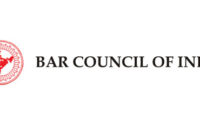An Overview of the Consumer Protection Act, 2019
This article is written by “Ritika Sharma” from “Ansal University” and curated by Aaryaki Rana from Chanakya National Law University, Patna.
The consumer protection bill 2019 was passed by the parliament on 6 August, 2019, replacing the consumer protection act, 1986 with the aim of providing timely settlement of disputes related to consumers. After receiving assent from the president of India, the act got published in the official gazette on 9th august 2019. On 20th July 2020, the consumer protection act, 2019 came into force.
E -commerce or electronic commerce is new concept that has developed and evolved in the 21st century. Today it has become an intrinsic part of everyone’s life. Digital marketing is widely used by the business houses. Since this invention, consumers can access the relevant information at any time and at any place on one click. Now, the consumers are better informed about the product, they can compare the price of a particular product, and upon their purchase, the product is made available at their doorstep.
But it is not that easy for the businesses to sell their products online. Since the customer cannot touch or feel the product, they often hesitate to buy. To curb this uncertainity, the businesses tend to spend more to build a brand image and goodwill. The major problem faced is making an online payment. Some customers are not deft enough to make an online payment. Privacy of customers is also at stake sometimes, since while doing online transactions they have to share their card numbers and many details. Considering the use of the internet and modern methods for dealing with online sales, Tele- shopping, or any online transaction and also for traditional methods of business, the government has introduced the new act altogether, instead of making an amendment to the 1986 act.
Compared to the 1986 Act, many major changes can be seen to the 2019 Act to enhance the protection of consumers. The 2019 Act provides a very comprehensive definition of consumer and unfair trade practices. The 2019 Act has also widened the definition of consumer as it covers the consumers involved in online transactions and includes issues relating to e- commerce. Also, it provides specific definitions for unfair trade practices as it includes sharing of personal information, return of defective goods, etc. within its range.
The 2019 Act introduces a concept called unfair contracts which include those contracts which are in favor of suppliers or manufacturers instead of being in favor of consumers or buyers. For instance, it includes contract asking for excessive security deposit for performance of contract, imposing penalty on consumer for breaching contract, imposing any unreasonable charge on consumer or having any obligation or condition which includes, not being hazardous for consumer, etc. Now, a complaint can be filed by the consumer in this regard. One of the most important additions made by the 2019 Act is the establishment of a central consumer protection authority (CCPA) which promotes, protects and enforces the rights of consumers.
SOME KEY FEATURES OF CONSUMER PROTECTION ACT, 2019
- Includes electronic commerce transactions: 2019 Act, has expanded the scope of definition of consumer. The definition now involvesany person who purchases any product offline or online (through electronic means). The 1986 Act didn’t include e- commerce transactions.
- Filing complaints through electronic medium: it enables the consumer to file complaints electronically and in consumer commission. It also contains the provision for hearing complaints through video conferencing.
- Product liability: A new concept of product liability is introduced bythis A It states that the manufacturer or the service provider or the product seller will be responsible if any harm is caused due to defective product or deficiency in service, and hence, should compensate for the same.
- Mediation: to make the process of settlement of dispute easier and quicker, it introduces the concept of mediation as an alternativedispute resolution mechanism.
- Penalties and punishments: central consumer protection authority (CCPA) can impose penalty up to rupees one million or imprisonment for up to two years on manufacturersfor misleading advertisements.
- Other rules: no fees will be charged for cases up to amount of Rs. Five lakhs.
On sale of adulterated or spurious goods manufactures license will be suspended for two years.
With the passage of time, the nature of technology also progresses. To prevent the harm caused by the new technology, there comes the need to amend or change our laws. Compared to the 1986 Act, the consumer protection Act 2019, provides more protection to the consumers. The 2019 act deals with the current age of technology advancement. It includes settlement of disputes involving online transactions, provides an easier way to file e- complaints, and also provides strict penalties on businesses if they do act which results in violating the interest of consumers. Prima facie it appears to be much more supportive and consumer friendly.


